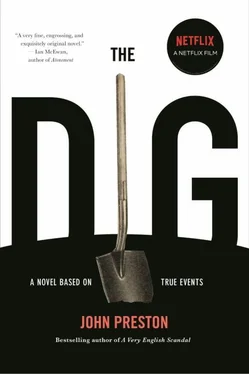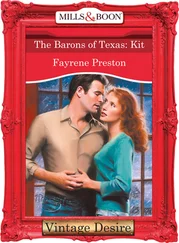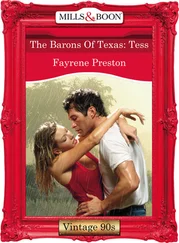“Now,” he said, “what’s all this about hearing nightingales on the wireless?”
“Oh… it’s rather a long story, I’m afraid.”
“I don’t mind.”
I wished I had kept my mouth shut, of course. However, I didn’t want to appear rude, so I had little choice but to proceed. “There’s a cellist called Beatrice Harrison,” I began. “She was Sir Edward Elgar’s favorite cellist — although that’s not really relevant here… Anyway, during the summer she liked to practice her cello out of doors. In her spinney. One evening she was playing a piece of music when she heard a nightingale singing along with her. At first, she thought it must be a strange coincidence. But just to make sure, she started playing a scale. And the nightingale accompanied her.”
“Are you quite sure about this?” Rory Lomax asked.
“Absolutely positive,” I told him. “The next night she tried again and the same thing happened. And the next — just the same. Miss Harrison was so excited that she went to see Lord Reith at the BBC. She thought the BBC might be interested in recording it, you see. But Lord Reith didn’t think it was a good idea. Not at first. He thought it might discourage people from actually going out to listen to nightingales. But Miss Harrison persuaded him that there were lots of people living in places where there was no chance of them ever hearing a nightingale, and so in the end he agreed.”
I stopped. Rory Lomax was looking at me with exactly the same sucked-in, studious expression with which he’d been regarding Charles Phillips.
“Go on,” he said.
“Do you really want me to?”
“Oh, I’m absolutely positive.”
“Well… the next time Miss Harrison went to practice outside there were microphones and amplifiers in place. She started playing as usual. The trouble was, nothing happened. First, she tried some Dvořák. That had worked in the past. Then Elgar, and finally ‘Danny Boy.’ But still nothing. There wasn’t a sound, apart from her cello, of course. Everyone was very jumpy by now — going to all that trouble for nothing. And then, just as they were all getting ready to go, the nightingale started to sing. It carried on for the next fifteen minutes, its voice rising and falling along with Miss Harrison’s cello. And that wasn’t all — people who had been listening to the broadcast in their gardens reported that other nightingales had also started singing along. Afterwards Miss Harrison received more than 50,000 letters of appreciation.”
When I had finished Rory Lomax didn’t say anything, not for a while. Indeed he seemed so taken aback by this story that I began to wonder if he was putting it on.
“But that’s wonderful,” he said at last.
“Yes, it was… It was wonderful…”
The silence between us was broken by a loud click. The sound came from Grimes’s tangle of purple metal. It was still on the grass, where he had put it earlier. Only now it had sprung open. Apparently warmed and unlocked by the sun, the metal casing had split apart.
We looked down in astonishment. Inside was a nest of silver bowls, one inside the other. There were eight in all, each decorated with a cruciform design. Apart from some slight corrosion around the edges, they were in mint condition. If anything, they were even brighter and shinier than the gold we had found. As we laid the bowls out along the top of the bank, sunlight swirled around the inside of their surfaces and bounced back at us.
The next day preparations began for Mrs. Pretty’s sherry party. The men were put to work leveling off the largest of the spoil heaps — in order to give guests an elevated vantage point from which they would be able to look down into the ship. They also scythed the grass beside the shepherd’s hut so that the Woodbridge Silver Band would have a level surface on which to play their instruments.
I assumed that these intrusions would infuriate Charles Phillips, but he didn’t react at all. This, I realized, was his way of dealing with trouble; he simply hung up an invisible curtain between himself and whatever displeased him. The more something displeased him, the more impenetrable the curtain became. At the same time, he appeared to be quite unaware of his own inconsistency; one mood simply replaced another like a series of eclipses, with each one obliterating its predecessor.
There was no doubt, though, that the preparations hampered our work. Already we were desperately short of manpower — still there was no sign of either Mr. Crawford or Mr. Ward-Perkins.
Nonetheless, we did make one more significant find. To begin with, Phillips thought that he had uncovered a shield. But as he went on it became clear that this was an enormous dish, almost two feet in diameter. Made of silver like the bowls, it was badly dented on one side, yet otherwise unmarked. The center of the dish was decorated with an eight-pointed star and on the rim were two stamps. One was hexagonal and consisted of lettering. The other was oval. Within the oval was the image of a veiled and haloed woman.
Phillips pointed at the stamps. “These, as you may or may not be aware, are control stamps of the Emperor Anastasius I. Anastasius, of course, being ruler of the Byzantine Empire from AD 491 to 518. Incredible, isn’t it? For centuries, everyone thought these people could barely make a club to beat each other over the head with. Now we find that their trading routes stretched as far as Constantinople.”
At lunchtime, Phillips lay against a tree trunk in his shirtsleeves, his legs stretched out in front of him. Mr. Grimes was also lying down, with his hands behind his head. While the rest of us became covered in mud and dust as a result of working in the chamber, his boiler suit was always immaculate. Mr. Jacobs, Mr. Brown and Mr. Spooner were sitting by themselves, a little distance away.
Robert was also there, wandering about distractedly and looking upset. His cheeks, I saw, were wet with tears. When I asked him what the matter was, he said that he had lost one of his roller-skates. I tried to reassure him that it was bound to turn up sooner or later.
“How do you know?” he asked.
“I don’t know for certain,” I said. “I just think it probably will.”
I would have been perfectly happy having lunch on my own, but no sooner had I settled down than Mrs. Pretty called me over. She was sitting in her wicker chair with her nephew, Rory, on a blanket at her feet. I sat beside him on the blanket.
“I do hope your husband will be back for the sherry party,” Mrs. Pretty said.
“I’m sure he will make it if he possibly can.”
“It is so good of you both to come here. It can hardly have been the start to married life that you were anticipating.”
“Believe me, Mrs. Pretty, I would not have missed this for the world.”
After we had finished eating, Rory went off to take some more photographs while the burial chamber was deserted. I was about to go myself when Mrs. Pretty said, “My dear… I wonder if I could ask you something. I would have asked Mr. Phillips, except that he seems a little preoccupied today.”
“Of course.”
Mrs. Pretty had not eaten anything, at least not while I had been there. Nonetheless, she touched her napkin to her lips before continuing. “Does it not strike you as strange that you have not found a body? The tomb — plainly it is a tomb — contains the grave goods of someone of great importance. And yet there is no sign of whoever was buried there.”
She was quite right, of course. It was strange that we had found no sign of a body. To begin with, Phillips had been convinced that it was only a matter of time. However, as the excavation had gone on, he seemed less and less willing to discuss the subject. From this I concluded that he was as puzzled by the absence of a body as everyone else.
Читать дальше












